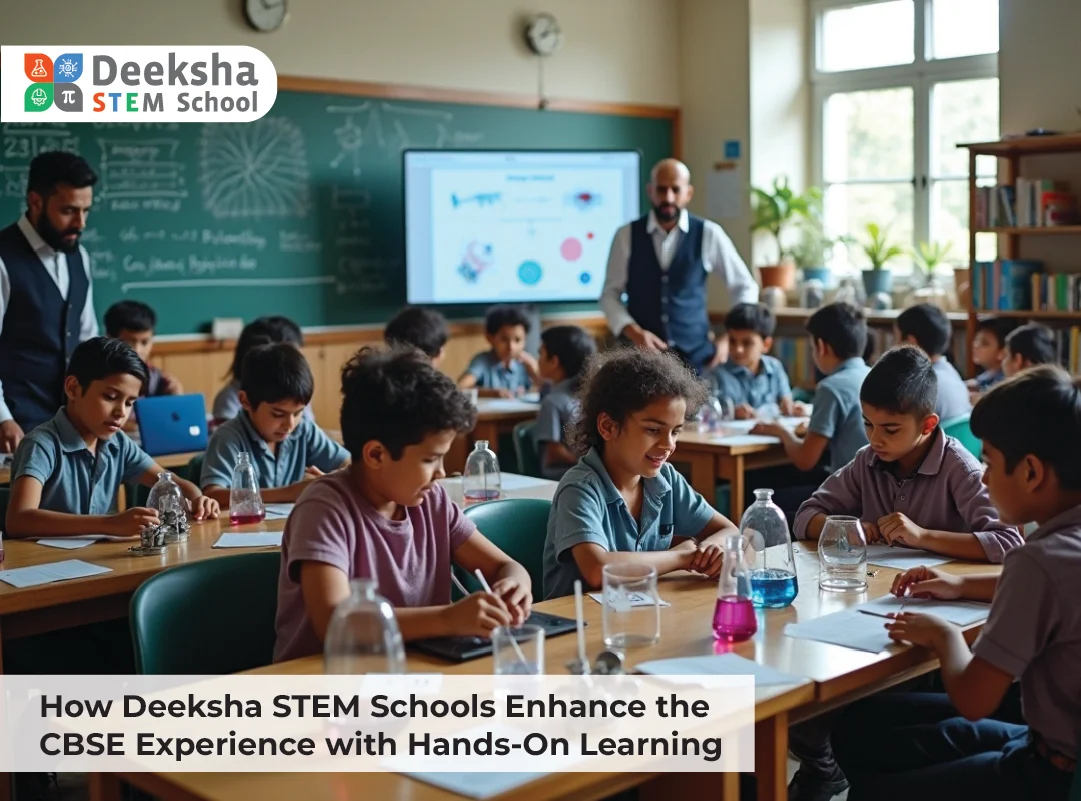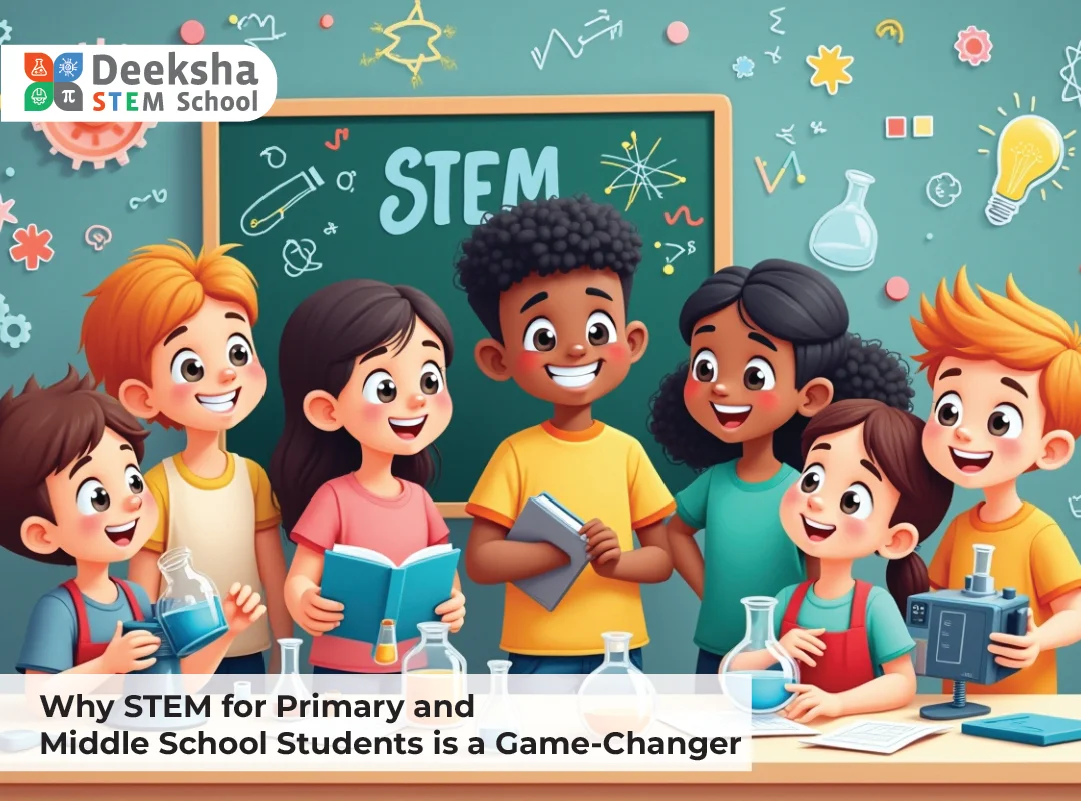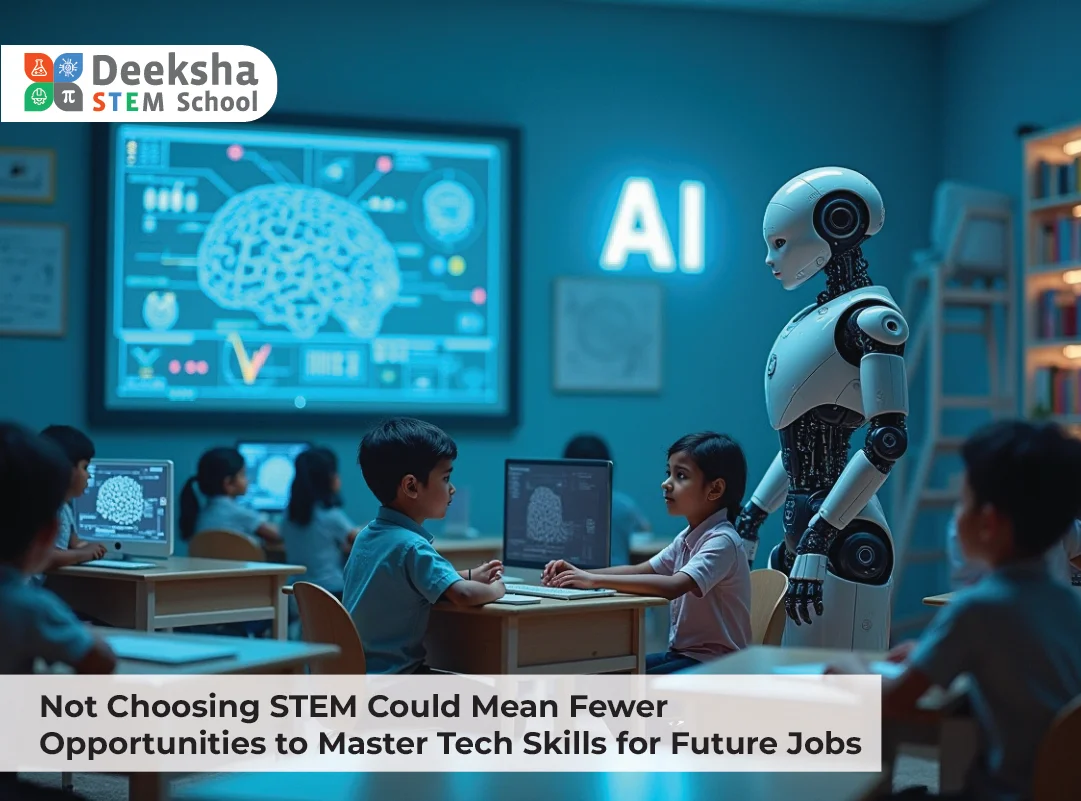How Project-Based Learning Builds 21st Century Skills in Children

Introduction
In today’s fast-paced world, children need more than just traditional classroom knowledge to succeed. The skills required to thrive in the 21st century go beyond memorization and testing—they involve critical thinking, creativity, collaboration, and problem-solving. One of the most effective ways to develop these skills in children is through Project-Based Learning (PBL).
PBL is an educational approach where students work on real-world projects, applying what they’ve learned to solve problems and create tangible results. This approach fosters deeper learning by encouraging students to think critically, collaborate, and innovate. In this blog, we will explore how project-based learning can help build essential 21st-century skills in children and prepare them for future challenges.
The Key 21st Century Skills Developed Through Project-Based Learning
1. Critical Thinking and Problem-Solving
- Why it’s important: Critical thinking is the ability to analyze and evaluate information to make decisions or solve problems. Problem-solving involves identifying challenges and developing strategies to overcome them. Both are essential skills for success in today’s world, where solutions to complex problems are constantly needed.
- How PBL develops these skills:
- In PBL, children are tasked with real-world problems that don’t have simple, straightforward answers. This challenges them to think critically about possible solutions, gather relevant information, and weigh different options.
- Students are required to analyze the problem, break it down into manageable tasks, and find creative ways to tackle each part. This hands-on approach helps develop their ability to solve complex problems and think critically in diverse situations.
- Example: In a science-based project, children might be asked to design a sustainable garden for the school. They would need to think critically about resources, climate, and plant selection while solving problems like space management and watering systems.
2. Collaboration and Teamwork
- Why it’s important: Collaboration is essential in both academic and professional environments. In the 21st century, most jobs require working in teams, where effective communication, conflict resolution, and shared decision-making are vital.
- How PBL develops these skills:
- Project-based learning involves working with peers, often in groups, to complete a project. This fosters communication skills, as children must discuss ideas, share responsibilities, and make decisions together.
- Children learn how to listen to others, provide constructive feedback, and compromise when working on group tasks.
- Example: During a group project on building a model of a city, children collaborate on different aspects such as design, construction, and research. They must work together to combine their ideas and skills to create a successful outcome.
3. Creativity and Innovation
- Why it’s important: Creativity is about thinking outside the box and finding new ways to approach problems. Innovation involves turning creative ideas into practical solutions. These skills are crucial for success in a world where new ideas drive progress.
- How PBL develops these skills:
- In PBL, students are often given the freedom to explore solutions in their own way, encouraging them to think creatively and come up with innovative ideas.
- Because projects are open-ended, students have the opportunity to develop their own unique solutions, whether it’s in the design of a product, the presentation of their findings, or the approach to the project itself.
- Example: In an art and technology project, children might be asked to design a product that uses renewable energy. They would need to apply their creativity to design an original product, considering both functionality and aesthetic appeal.
4. Communication Skills
- Why it’s important: Effective communication is key to success in the modern world. Children need to be able to express their ideas clearly, listen actively, and adapt their communication to different audiences.
- How PBL develops these skills:
- PBL encourages children to present their findings, whether in written reports, presentations, or digital formats. This helps them practice articulating their ideas clearly and confidently.
- During group work, children must communicate with each other regularly, discussing ideas, providing feedback, and collaborating on solutions.
- Example: After completing a project on environmental sustainability, children might be asked to present their findings to the class or a panel of judges. This encourages them to communicate their ideas effectively, practice public speaking, and present information clearly.
5. Self-Management and Accountability
- Why it’s important: Self-management involves setting goals, staying organized, and being responsible for one’s actions. Accountability is about taking ownership of tasks and outcomes. Both skills are essential for success in both school and future careers.
- How PBL develops these skills:
- In project-based learning, children are given responsibility for their work. They must manage their time, stay organized, and ensure they meet deadlines.
- Students are encouraged to set goals, track progress, and reflect on their work, which helps them develop a sense of ownership and accountability for their learning.
- Example: A project on building a website requires children to break the task into smaller parts, set deadlines for each part, and ensure that everything is completed on time. They are responsible for their individual contributions and for ensuring that the team’s goals are met.
6. Technology Literacy
- Why it’s important: In the digital age, being able to use technology effectively is crucial. Children must be comfortable with digital tools and know how to use them for research, design, communication, and presentation.
- How PBL develops these skills:
- Many PBL projects incorporate technology, whether it’s using digital tools to design, research, present, or communicate. Children learn to use various software, apps, and online resources to enhance their projects.
- By working with technology in a practical context, children develop the skills necessary to succeed in a digital world.
- Example: In a project where students create a digital portfolio of their work, they learn to use technology to present their ideas, create multimedia content, and share their work with others.
How Deeksha STEM Schools Implements Project-Based Learning
At Deeksha STEM Schools, we believe in the power of project-based learning to develop 21st-century skills in children. Our curriculum integrates PBL across subjects, encouraging students to apply their knowledge to real-world problems. Whether through STEM projects, artistic endeavors, or social studies activities, we provide opportunities for students to collaborate, think critically, and create innovative solutions.
Our approach to PBL encourages students to take ownership of their learning, set personal goals, and work with their peers to achieve shared objectives. With access to cutting-edge resources, technology, and expert mentors, students at Deeksha STEM Schools are equipped to succeed in the future workforce.
FAQs
1. What is project-based learning (PBL)?
- Project-based learning is an educational approach where students work on a project over an extended period, applying knowledge and skills to solve a real-world problem. It encourages collaboration, creativity, and problem-solving.
2. How does PBL help children develop 21st-century skills?
- PBL helps children develop critical thinking, collaboration, creativity, communication, and technology literacy. It prepares them for the modern world by teaching them how to work with others, think critically, and use technology effectively.
3. Does Deeksha STEM Schools use PBL in its curriculum?
- Yes! Deeksha STEM Schools use project-based learning across a variety of subjects, allowing students to engage in hands-on projects that build critical 21st-century skills. Our STEM programs incorporate PBL to enhance problem-solving, teamwork, and innovation.
Conclusion
Project-based learning is one of the most effective ways to develop essential 21st-century skills in children. By engaging in real-world projects, children build creativity, critical thinking, collaboration, and problem-solving skills that will serve them throughout their lives. With the right guidance and opportunities, project-based learning can help shape a child’s future, preparing them for the challenges and opportunities ahead.
At Deeksha STEM Schools, we are committed to fostering these skills through PBL, ensuring that our students are ready for the future and equipped to succeed in a rapidly changing world.




